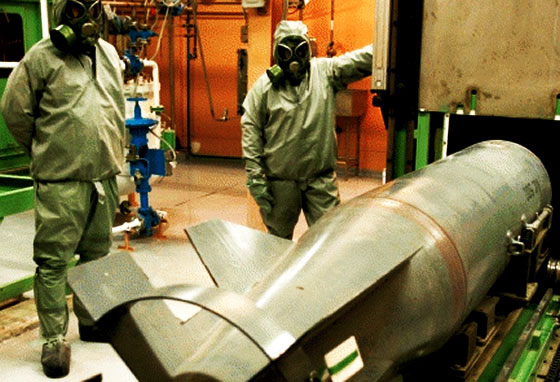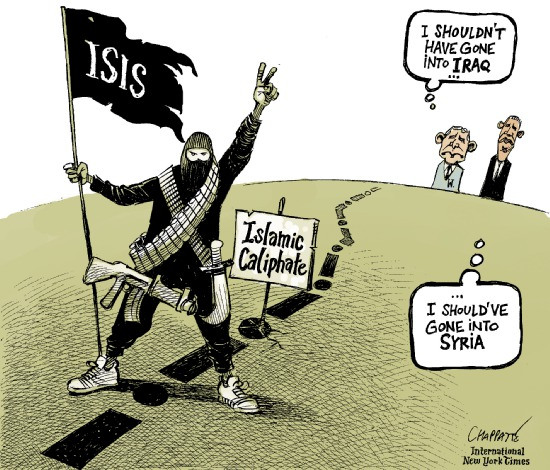As speculation surrounding the use of chemical weapons in Syria draws to a close with confirmation reports by UN investigators, the governments of most countries in the Western world have undertaken a flurry of activity. While emergency meetings of elected representatives and meetings between heads of states are important measures in dealing with this issue, there are a few reasons to be concerned:
1. Syria is not a signatory to the Chemical Weapons Convention. Will the compliance measures apply?
The Chemical Weapons Convention (CWC), exists for the purpose of eliminating chemical weapons, as a whole, within the jurisdiction of States Parties. The CWC, as of May 2009, had been signed and ratified by 188 states, and signed, not ratified, by two more. The Syrian Arab Republic has not yet signed or ratified the CWC, and are only signatories to the Rome Statute that bans the use of weapons. As such, they cannot be held legally liable for the possession of these weapons under the CWC. As the official head of State, el-Assad cannot be held to the same standards of those who have signed the Convention. Furthermore, as Article I Section (b) of the CWC states “each State Party to the convention undertakes never under any circumstance to use chemical weapons,” it is necessary to consider whether or not the compliance measures outlined in Article XII will apply to Syria. By using chemical weapons, Syria, the government and its people, are not officially breaking international law: they have not agreed to the law and are therefore not restricted by it. However, the Responsibility to Protect program that cooperates with the United Nations, specifically the Human Rights Council, may provide an opportunity for states to intervene, particularly if neither French efforts to indict el-Assad nor Russian efforts to assuage him are successful.
[captionpix align=”left” theme=”elegant” width=”300″ imgsrc=” http://natoassociation.ca/wp-content/uploads/2013/09/hi-syria-chemical-weapons-8.jpg” captiontext=”US Secretary of State John Kerry has called the chemical attacks a ‘moral obscenity'”]
2. On whose side will Western forces enter? Are both sides not morally repugnant?
Comments by US Secretary of State John Kerry that called the chemical attacks in Syria a “moral obscenity” certainly indicate the way many feel about the subject. However, what proof exists as to who used the chemical weapons? Although the main perpetrator, is el-Assad’s forces, the possibility that the rebel forces used the chemical weapons still does exist. Furthermore, regardless of which side used the chemical weapons, the actions taken by both sides are in fact morally repugnant. On what grounds can any state say that the actions of the rebel forces have been more humane than those of el-Assad’s forces? In fact, a recent article provides photographic evidence that the rebel forces have themselves been inhumane. Either way, morality is in the eyes of the beholder and entering on either side will create moral issues, not only within the culture of Syria, but also throughout the Western community.
It is just as important to consider the international ramifications of entering on either side, either militarily or politically. Both Russia and China have made it quite clear that they do not support any military intervention in Syria. Both states have vetoes in the UN Security Council, which would make it difficult to acquire Security Council support for any armed intervention. Without support from the Security Council, the UN cannot approve military intervention in Syria. Intervening without the approval of the UN will also likely cause problems for the West as both Russia and China will respond, and combined they are powerful enough to do so both economically and militarily; a terrifying proposition for most western states. Furthermore, there is significant political will at stake with Syria: the opposition provided by Russia and China, as well as Iran, will ensure that any intervention will not be without political ramifications from other states, which will draw more states into war, whether hot or cold.
Israel may also be an issue to consider: Prime Minister Netanyahu stated on 27 August that he was worried that an attack on Syria by the West may trigger retaliation by Syria on Israel. Should that happen, Netanyahu warned, Israel “will respond… with force.” Drawing more states into the Syria situation may have catastrophic consequences if strategies and policies are not aligned.
3. How will this action be classified? And how will the el-Assad government react?
As stated above, Russia and China will make it difficult for any action to be sanctioned by the UN. Furthermore, should any action miraculously manage to be sanctioned by the UN, what consequences might this have on continued Syrian participation in the UN, particularly the Human Rights Council? It is likely that the response will not be positive.
[captionpix align=”right” theme=”elegant” width=”300″ imgsrc=”http://natoassociation.ca/wp-content/uploads/2013/09/hi-syria-chemical-weapons-8.jpg ” captiontext=”What consequences might a UN intervention have on Syrian participation in the UN?”]
It may also be feasible that any action taken will be classified as NATO sanctioned. This possibility remains unlikely as NATO chief Anders Fogh Rasmussen has remained vigilant that no NATO action will be taken on the Syrian issue. Although a “coalition of the willing” is more likely, the negative consequences for setting another Kosovostyle precedent for NATO intervention are not desirable.
Multilateral action separated from any formal international organizations may be the most useful classification for any actions taken in Syria; a French-US coalition that conducts drone strikes against Syrian targets without the sanctioning of NATO or the UN Security Council may be more effective than NATO or UN sponsored aggression. This would have the benefit of not setting precedents. It would also not have the disadvantage of Russian and Chinese dissent, and would keep individual states rather than international organizations accountable for their own actions and decisions.
Regardless of how the action is classified, el-Assad will not take kindly to the infringement of sovereignty that will result from intervention. El-Assad is convinced that this civil war will be a war of extermination of the rebels, and the rebels have the same thought toward the regime. Intervention in Syria will quickly become another Iraq 2003 situation; one in which thousands of lives will be lost, there will be no clear exit strategy, and there exists only a small possibility that human rights violations will be corrected, while a certainty exists that more will be committed.
4. What will the main goal be? What is the grand strategy?
Finally, as decision makers conclude what they will do in Syria in the short-term, they must consider the long-term consequences, as well as the long-term objectives. Simply engaging in limited air strikes or putting boots on the ground as methods of intimidating either side , does not win wars. At best this course of action may put a pause on hostilities. This does not solve problems. States must decide, prior to taking action, what their strategy will be and at what point their action will no longer be required. They must decide what will constitute a success and at what point they will have achieved their goals. Entering into a war without a strategy is like entering into a game of soccer without goal nets. There must be an objective and there must be a strategy to avoid another Iraq 2003 situation.
The rush into emergency meetings and decision making occurring in the aftermath of the 26 August UN inspection provides little assurance that policy-makers are thinking about the long-term. While the short-term is important and it is necessary to respond quickly and effectively, to do so without a plan and without an objective is unwise. It is certainly not an easy decision to make, as there are no credible alternatives to action. However, a grand strategy must exist, both on state and alliance levels to ensure the best possible outcomes for Syria and for NATO states.




